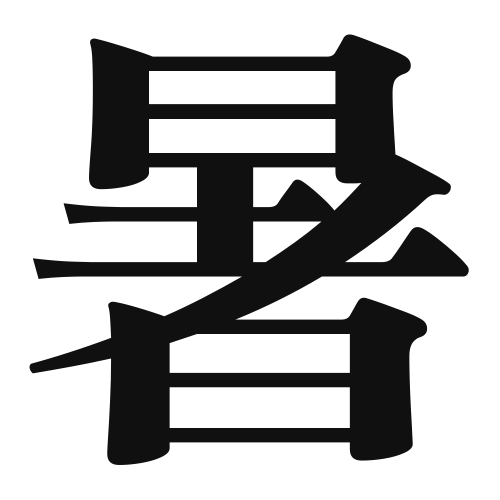1. Overview of Meaning
The kanji “暑” (atsu) means “hot” or “heat.” It is commonly used to describe high temperatures, especially during the summer months.
2. Formation and Radical
Formation of the Kanji: The kanji “暑” is a phonetic-ideographic character (形声文字). It combines the radical for “heat” (火) and a phonetic component (者) that suggests the pronunciation.
Radical: The radical of “暑” is 火 (hi), which means “fire.” This radical is often associated with heat and warmth.
3. Examples of Usage
Common Words and Phrases:
- 暑い (atsui) – hot
- 暑さ (atsusa) – heat
- 暑中見舞い (shochu-mimai) – summer greeting card
Example Sentences in Daily Conversation:
- 今日はとても暑いですね。 (Kyou wa totemo atsui desu ne.) – It’s very hot today, isn’t it?
- 夏の暑さが苦手です。 (Natsu no atsusa ga nigate desu.) – I am not good with the summer heat.
4. Synonyms and Antonyms
Similar Kanji:
- 熱 (netsu) – heat (more intense, often used in medical contexts)
- 温 (on) – warm (suggests a milder temperature)
Antonyms:
- 寒 (samui) – cold
- 涼 (ryou) – cool
5. Cultural and Historical Background
Relation to Japanese Culture: The concept of heat is significant in Japan, especially during the hot summer months. Festivals and traditions often revolve around the summer heat.
Proverbs and Idioms:
- 暑さ寒さも彼岸まで (Atsusa samusa mo higan made) – “The heat and cold will last until the equinox,” meaning that all seasons have their limits.
